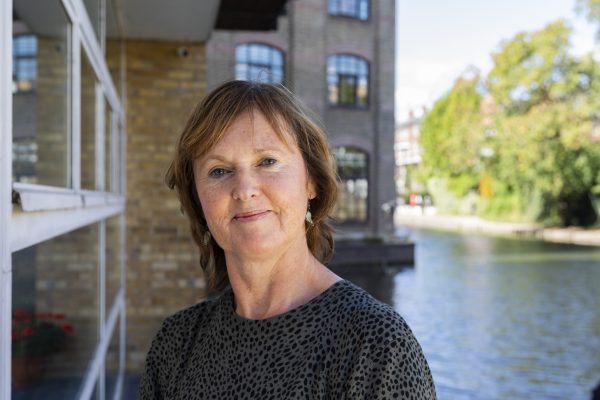ColegauCymru was pleased to lead a delegation from Wales on a visit to Scotland in early April, to explore their work in the field of recognition of prior learning (RPL).
The Welsh Government funded visit took a delegation of seven individuals from stakeholder organisations for a two-day visit to the Scottish Credit and Qualifications Framework Partnership (SCQF) in Glasgow. Here, Learning & Work Institute Cymru Head of Campaigns and Policy Development, Kay Smith, shares her learnings from the visit.

“The last few months have been full of interesting projects and development work at Learning & Work Institute in Wales, with a focus on supporting Citizen Curriculum pilots, piloting support and training for career change with New Futures, developing ESOL policy and practice alongside working with Adult Community Learning partnerships to produce a framework for effective practice. So, with the invitation to join colleagues in Scotland to explore the country’s emerging policy and practice surrounding RPL, we immediately saw the opportunity to use this to inform our current and future work.
The programme included presentations which illustrated how RPL was being implemented and the role of the SCQF in leading projects to explore skills recognition and RPL for key groups. SCQF have led on a range of projects to develop tools and capacity building for military leavers, refugees, apprentices and for institutions.
I’ve been interested in the opportunities for RPL to be used effectively in widening access to adult and lifelong learning for some time and it featured in areas of development work and research undertaken by NIACE (the predecessor of Learning & Work Institute). The visit reinforced the value of RPL as it acknowledges learners’ existing knowledge, skills, and experiences. It allows learners to demonstrate their competence without necessarily undergoing additional formal learning. Essentially, RPL enables individuals to build upon their existing expertise and qualifications.
Many practitioners working to engage adults in further learning recognise that for some a lack of confidence is a major barrier. The RPL process provides a structured way to explore and identify skills and knowledge that learners’ may not have identified for themselves. It can build confidence in their existing abilities and motivation to progress further.
The discussion and presentations highlighted many benefits to learners – there can be time and cost savings, allowing learners to skip redundant learning experiences. If they already possess relevant knowledge or skills, they can avoid repeating coursework and RPL can provide more flexible pathways to recognising skills – including informal learning, self-study and work experience. RPL can provide building blocks and steps towards formal qualifications enabling learners to progress in their learning or career path appropriate to their level of competence.
I’m excited about the opportunities for RPL in Wales and our discussion highlighted a number of areas or cohorts of learners that might benefit:
- Migrants and refugees to enable accelerated learning and pathways to employment – it can promote inclusivity by valuing different learning contexts, backgrounds and cultures.
- Career change and progression – recognising skills gained on the job or through informal learning and this might be particularly useful for industries in transition or new sectors. The Skills Discovery Tool developed for military leavers in Scotland was an impressive way to identify and map relevant skills.
- Family learning provision often reaches adults with low levels of confidence and few formal qualifications or those who want to return to the labour market after time away. Conversations often reveal a host of skills and experience gained through the process of running a home, raising a family, previous working life or engaging in voluntary work.
Whilst across Wales there is existing practice in the use of RPL, it appears to be fragmented, not systematic and in some areas of provision, not recognised at all.
At the end of two busy days full of information and discussion all of us were excited about the possibilities and the key takeaways for me were:
- A need for a clear strategy and policy for RPL in Wales.
- Assigning clear leadership to driving forward actions around RPL.
- Providing resources and capacity building for stakeholders to build their confidence in the use of RPL and the process for engaging in it.
- Awareness raising amongst providers and learners about RPL and the benefits.
- Exploring how RPL can be used in some sectors as a priority or with targeted cohorts of learners.”
Next Steps
The delegation will reconvene to discuss the information presented and consider how such practices could be introduced into the Welsh education and training landscape. The visit report, with recommendations for the Welsh Government and/or the Commission for Tertiary Education and Research, is being produced for consideration.
Further Information
Kay Smith, Head of Campaigns, Policy and Development
Kay is head of campaigns, policy and development for L&W in Wales. Kay has expertise in working with broadcasters on social action campaigns and working with stakeholders and partners across Wales, she leads on promotional activity for the Adult Learners' Week festival and the Inspire! Awards to raise awareness and widen access to lifelong learning. Alongside this other development and policy work includes Family Learning, ESOL, Essential Skills and Community Learning.
ColegauCymru Recognition of Prior Learning
Scottish Credit and Qualifications Framework
Jeff Protheroe, Strategic Advisor, Work-based learning and Employability
Jeff.Protheroe@ColegauCymru.ac.uk






